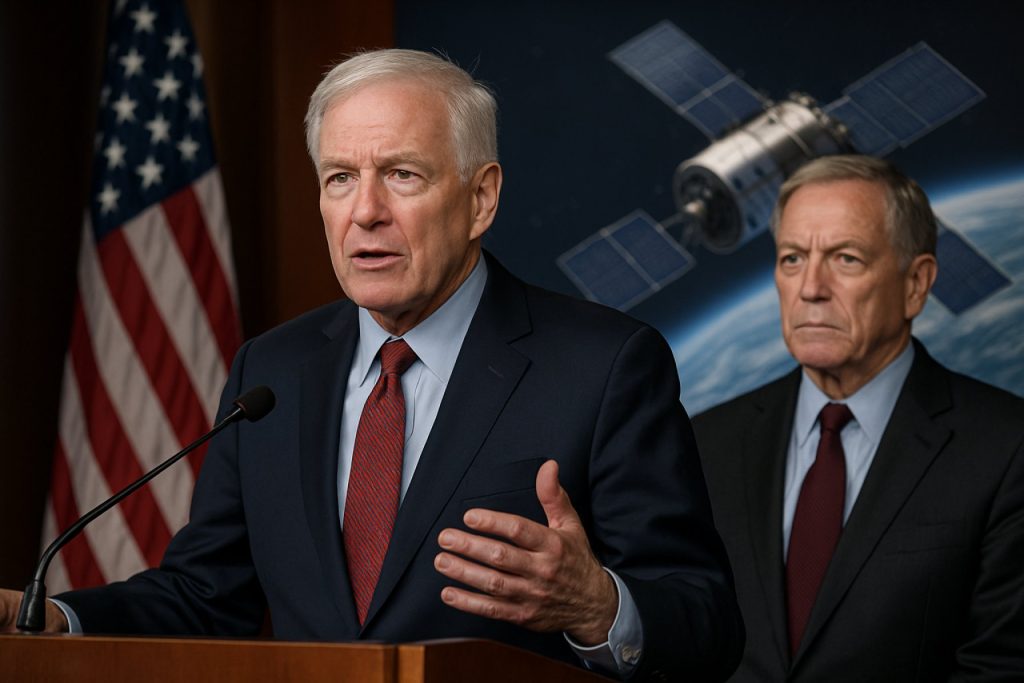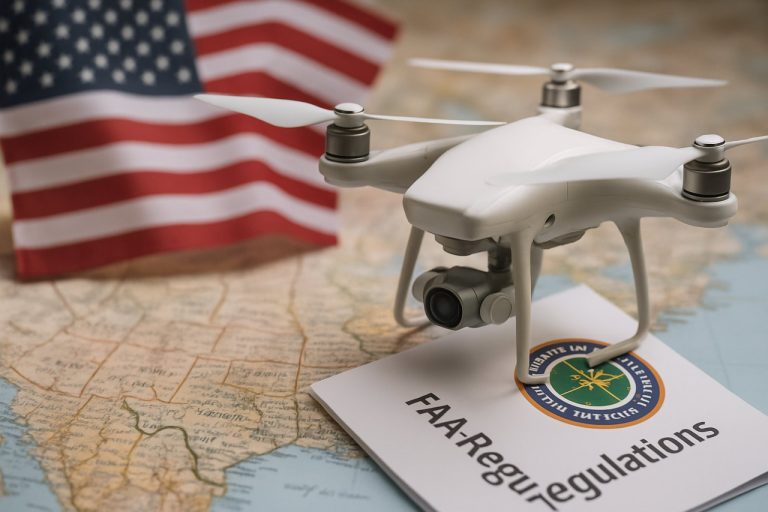
New 2025 Space Law Targets Threats from China and Russia—Are America’s Satellites Finally Safe?
Senate bill seeks to lock out foreign adversaries from U.S. satellite networks. Here’s what you need to know about the Secure Space Act of 2025.
• Bipartisan “Secure Space Act of 2025” introduced June 5, 2025
• Proposed ban targets satellite market access for foreign entities flagged as security risks
• Includes Geostationary and Non-Geostationary satellite systems
• Companion House bill already passed in April
The fight to protect America’s satellites has reached new heights. Two U.S. Senators—one Democrat, one Republican—are shaking up Capitol Hill with a bold proposal to crush security threats from foreign powers like China and Russia.
The Secure Space Act of 2025, spearheaded by Senators Deb Fischer (R-Neb.) and Ben Ray Luján (D-N.M.), aims to shut the door on adversaries who want access to the nation’s sky-high communications infrastructure. If the Senate passes the bill, it will rewrite how the U.S. government defends its satellite networks.
Satellite technology powers everything from internet to GPS navigation. With the rise of low-earth orbit (LEO) satellite mega-constellations and growing concerns about cyber espionage, lawmakers are under pressure to act fast.
Q: What Does the Secure Space Act of 2025 Actually Do?
The new bill zeros in on a glaring weakness: the vulnerability of U.S. satellite systems to hostile foreign actors.
– It blocks the Federal Communications Commission (FCC) from issuing licenses or approving U.S. market access to any satellite company that produces, provides, or uses communications equipment or services identified as security risks.
– The measures sweep in both Geostationary (GEO) and Non-Geostationary Satellites (NGSO), as well as the massive network of gateway stations on the ground.
– This initiative expands protections under the existing Secure and Trusted Communications Networks Act of 2019, marking a significant update for the space age.
Why Now? The Stakes for American Infrastructure in 2025
America’s reliance on satellites has exploded. They control everything from everyday communications to military operations. Any breach could spell disaster—from stolen data to hacked networks that shut down entire cities.
Senators say foreign-controlled satellite access is a red flag. With rapid satellite launches set to hit new records in 2025, the U.S. government is moving quickly to block “bad actors” and bolster technological defenses.
Learn more about national security at CISA and satellite technologies at NASA.
Q: Who’s Behind the Bill—and Why Does Bipartisanship Matter?
The Secure Space Act is co-led by Republicans and Democrats, signaling rare unity in Washington. This cross-party approach amplifies the urgency and likelihood of the bill passing into law.
Lawmakers stress that keeping American networks safe transcends politics. As satellite dependence deepens, bipartisan cooperation is the linchpin for staying ahead of emerging threats.
How Will the Secure Space Act Impact the Satellite Industry?
Major industry players, from commercial satellite providers to tech giants, are watching closely. The bill could:
– Change the FCC’s approach to licensing, forcing stricter security reviews.
– Restrict the U.S. market for satellite services tied to flagged countries.
– Encourage American and allied innovation in secure communications, particularly as 5G and advanced broadband networks expand.
For updates on telecommunications security, visit the Federal Communications Commission.
Is This the Start of a New Era in Space Security?
With the House already passing its own version of the bill, momentum is strong. The Secure Space Act signifies a new phase in American space policy—one that prioritizes ironclad network security, particularly against cyber threats.
Analysts expect further legislation as private space launches accelerate and adversaries seek new footholds in global communications.
Stay tuned for fast-moving votes, and get involved: urge your lawmakers to support high-security standards for U.S. satellite networks!
Space Security Action Checklist:
- Track the progress of the Secure Space Act of 2025
- Contact your Senators to express support or concerns
- Follow updates from the FCC, NASA, and CISA
- Stay informed about threats to communications infrastructure



